Plant-Based Diet Beginners Guide
So you have made the big decision to take control of your health and join the whole food plant-based diet movement. Congratulations! You have just made one of the best decisions of your life! This Plant-Based Diet Beginners Guide should help you get started.
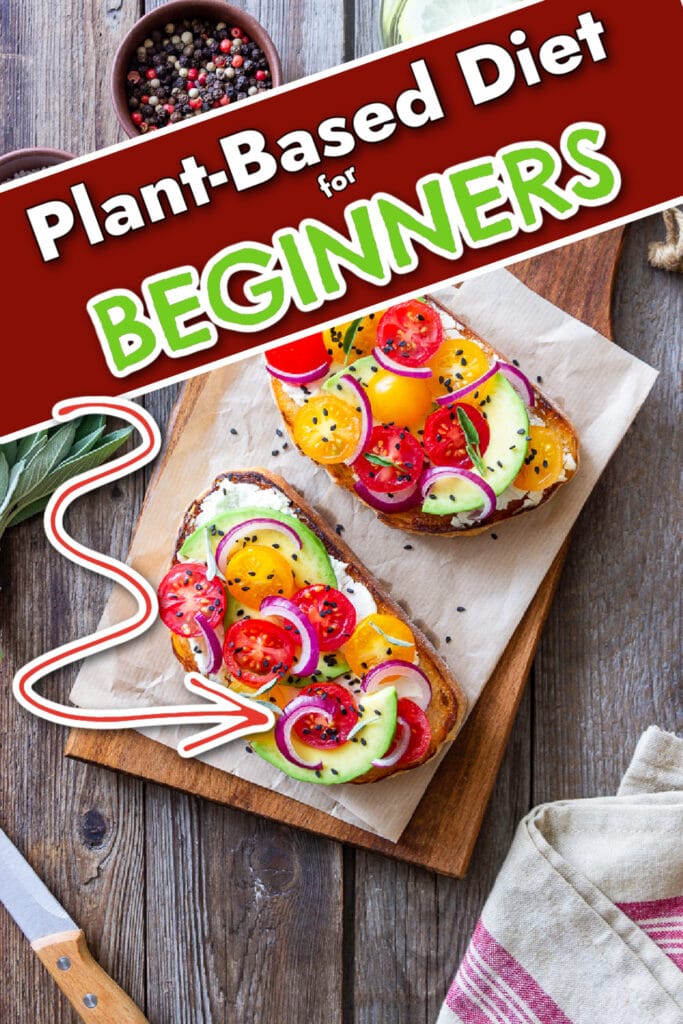
Embarking on a plant-based journey can be a rewarding and transformative experience, but knowing where to start can be overwhelming. This beginner’s guide is designed to simplify the process and provide you with essential tips and insights for adopting a plant-based diet.
From understanding what a plant-based diet is to exploring practical steps for incorporating more plant-derived foods into your daily routine, this guide will equip you with the knowledge and confidence needed to make a smooth and enjoyable transition. Whether you’re motivated by health, environmental concerns, or ethical reasons, this guide will help you take the first steps toward a vibrant, plant-based lifestyle.
Whole Food Plant-Based Diet Beginners Guide
Some people become interested in a whole food plant-based diet after watching documentaries like Forks Over Knives, Eating You Alive, What the Health, PlantPure Nation, and others.
Their interest is piqued after learning that the food hanging at the end of their fork can play a big role in determining whether they develop chronic illnesses like heart disease, diabetes, high blood pressure, and high cholesterol. Let’s face it, we all know that we need to eat more vegetables.
Others are interested in helping save the planet or reducing the suffering of animals.
Regardless of the reason you found yourself here, well done! Beginning a whole food plant-based diet plan and lifestyle is one of the best things you can do for your health and our planet.
But now you may be wondering where in the world to begin. Our plant-based starter kits are a great way to begin because they include a book, a set of DVD lectures from Dr. Neal Barnard, M.D., and a folder full of helpful literature from the Physicians Committee for Responsible Medicine.
Starting a new way of life and health is like beginning a journey, so it’s helpful to have some guidance as you embark on this new adventure. To help you get started, we have pulled together some of the best resources available.
Remember to stay positive. This is a lifestyle of vitality and quality of life, not deprivation. This plant-based diet guide for beginners should help get you going.
If you are looking for more information on nutrition and science, check out our list of the top 20 plant-based diet books of all time.
What is a plant-based whole food diet?
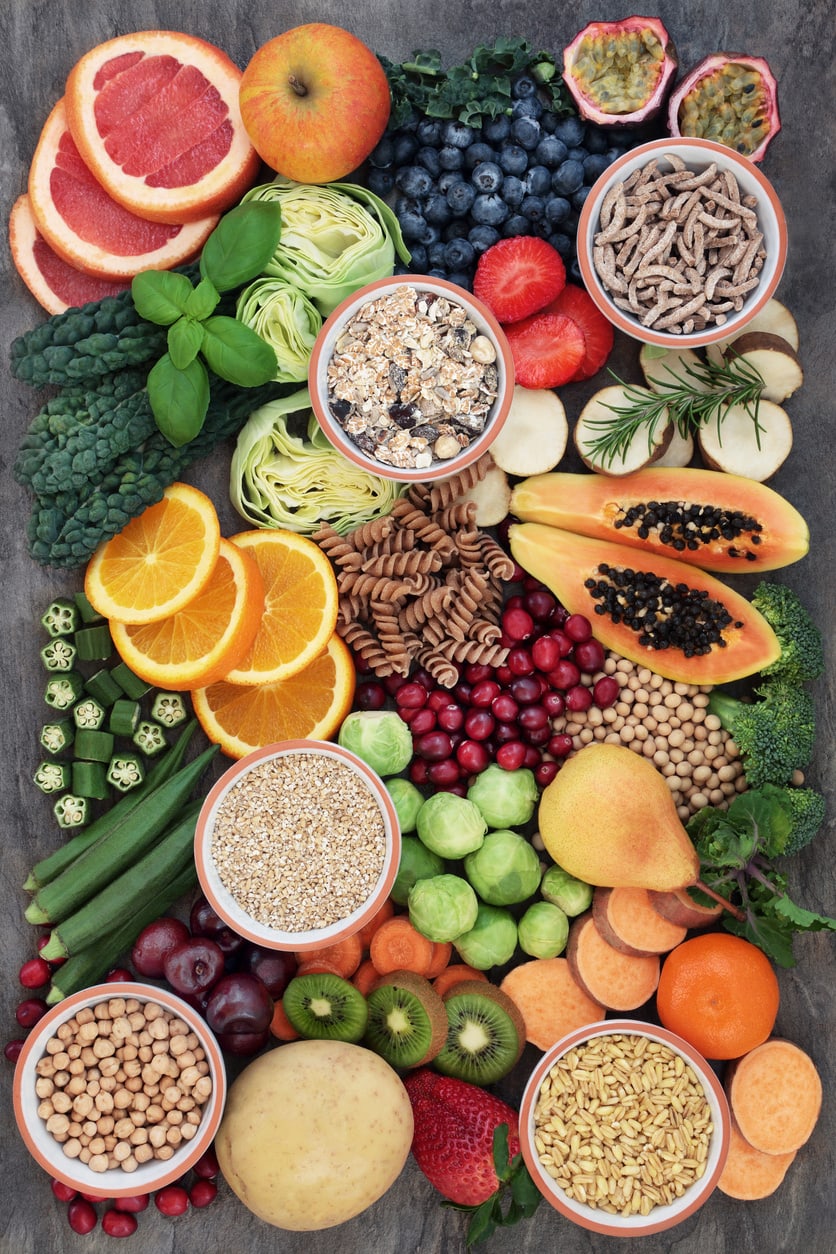
A plant-based diet focuses on consuming foods primarily derived from plants, including vegetables, fruits, whole grains, legumes, nuts, and seeds. It emphasizes minimizing or eliminating animal products to promote overall health and well-being.
This diet is known for its potential benefits, such as improved heart health, weight management, and reduced risk of chronic diseases. Our article on what a plant-based diet is and foods you can eat will help answer basic questions most people have.
Four plant-based food groups
The term whole in whole food plant-based describes foods that are minimally processed. This includes whole grains, fruits, vegetables, and legumes, and it also includes, in moderation nuts, seeds, avocados, natural sweeteners, and certain soy or wheat products that don’t contain added fat such as tofu and tempeh.
Eating a diet rich in plant-based, whole foods means nourishing your body with foods from the following groups. Our plant-based diet food list is a great resource that includes a grocery list.
- WHOLE GRAINS – This group includes brown rice, millet, oats, barley, corn, bulgur, and all products made from whole grains including bread, cereals, pasta, and more. Whole grains are filling but have very little fat. In countries where whole grains are staples, such as rural Asia, diabetes, heart disease, and certain cancers, are much less common than in the States and Europe.
- LEGUMES – This group includes beans, peas, and lentils. They are hearty, high-protein foods that are rich in calcium, iron, cholesterol-lowering soluble fiber, and even traces of omega-3 fatty acids.
- VEGETABLES – These foods are loaded with vitamins and minerals, are very low in fat, and like all plant foods, have no cholesterol at all.
- FRUIT – These are vitamin-rich and have no cholesterol. They do have natural sugar but are low on the glycemic index, except for watermelon and pineapple.
Recommended foods do NOT include meat, dairy products, eggs, added oils, or most processed foods. This list of 70+ Plant-Based Meals can help beginners and motivate others who might be interested in the food healthy vegans eat.
For more information visit Forks Over Knives to check out this article, What is a Whole Food Plant-Based Diet.
Not ready to go in 100%?
Some people are not ready to go cold turkey right off the bat. In that case, a useful recommendation is to add in as many vegetables, fruits, grains, and legumes as you can. This will help keep you full and crowd out the less healthful foods. Maybe even consider trying Meatless Mondays at your house.
For more tips with getting started, take a look at this article, How to Start a Plant-Based Diet: Fast Way vs Slow Way
Concentrate on major shifts, such as replacing meat, dairy, and eggs with whole-plant foods. These changes significantly enhance the nutritional quality of your diet, leading to the most noticeable and measurable health improvements.
Frequently Asked Questions
Question #1: Isn’t eating healthy expensive? I’m on a budget.
Dr. Neal Barnard, President of the Physicians Committee for Responsible Medicine says to remember two words, “Greens and beans.” Plant-based bulk foods are much less expensive than meat, cheese, and dairy products.
Useful Links:
- Eating Healthy on a Budget (3-minute video from NutritionFacts.org)
- Plant-Based Nutrition is Affordable– Feed a Family for Less than $130/Week
- Plant-Based on a Budget
- Nutritionist’s List: Healthy Low-Cost Staples
Question #2: What about calcium and protein?
When this question comes up in the Food for Life classes I teach, I ask people to name the largest land-dwelling mammals they can think of off the top of their heads. They say things like an elephant, rhino, hippopotamus, giraffe, cow, and horse.
What do these animals eat exclusively? Plants! If plants provide enough calcium for those massive muscles and bone structures, we should have no problems getting enough.
This article, The Protein Myth: Vegan Athletes, will help encourage those concerned about not getting enough protein with a plant-based diet.
There are a number of professional plant-based athletes like NFL defensive lineman David Carter, prominent tennis players Venus and Serena Williams, Ultra Athlete Rich Roll, professional boxer Mike Tyson, Ultramarathoner Scott Jurek, and Patrik Baboumian, the Strongest Man in Germany.
Useful links about protein & calcium:
- Five Protein Myths
- The Protein Myth
- Calcium and Strong Bones
- Scientific Research Suggests, Milk Does NOT Do the Body Good
Question #3: What does the science say about a plant-based diet?
Remember when your mom used to tell you to eat your fruits and vegetables? It turns out she was right! Nutritional science continues to crank out peer-reviewed research that demonstrates the nutritional value of eating a plant-based diet.
Plants are full of health-promoting antioxidants, fiber, vitamins, and minerals. They even have calcium and protein.
This website has a number of physicians and scientists who are our Expert Guest Authors. They include cardiologists and diabetes specialists who share important information about the benefits of a whole food plant-based diet on our Scientific Research Category Page. These are some of the articles they have shared with our readers.
- Insulin Resistant Diet for Diabetes by Dr. Neal Barnard, MD
- Diet for Heart Health and More by Dr. Caldwell Esselstyn, Jr. MD
- Understanding Nutrition by Dr. T. Colin Campbell, PhD
- How Not to Die by Dr. Michael Greger
Question #4: Will any of the food taste good?
Let me make a few suggestions from this very website. These are some of my favorite recipes. I’ve even included a link for those who don’t like to cook with some plant-based diet recipes for beginners.
- 10 Simple & Healthy Plant-Based Recipes in 20 Minutes or Less
- Black Bean Burgers
- Vegan Nacho Supreme
- Cauliflower BQ Wing Bites
- Creamy Vegan Cheese Sauce
- Hot Fudge Cake
- Glazed Carrot Cake
There are plenty of plant-based cookbooks that can help you get more comfortable preparing healthy meals in your kitchen.
Question #5: What about eating at restaurants, traveling, or away from home?
It does take a little more planning and creativity, but traveling and eating at restaurants do not have to be difficult. Most restaurants have dishes you can eat. The important thing is to ask….and ask respectfully without demanding.
We have been pleasantly surprised at the amazing and tasty foods we have been able to get in restaurants. Many servers and chefs are very happy to guide you through their options, and some will even make special meals just for you.
The key for us seems to be the attitude with which we ask. This article, Guide to Dining Out on a Plant-Based Diet, will help.
And, for those traveling by car this article, Best Healthy Road Trip Snacks, will be a great asset.
Useful links for traveling:
- Plant-Strong on the Road
- Vegan ROAD TRIP! (Whole Food, Plant-based & Oil-free)
- 7 Keys to Success on a Healthy Plant-Based Diet
- Travel Tips for Healthy Snacks & Meal Planning
- How to Mix Travel With Plant-Based Eating
Question #6: Where in the world do I even begin finding the foods I will need at the grocery store?
I am so glad that you asked! This Beginners Guide to Plant-Based Grocery Store Shopping should be all you need. It even has a PDF file you can print. If you need a little help in the kitchen, take a look at our cooking tips and essential kitchen tools.
Question #7: What do you keep on hand in your kitchen to stock your pantry and refrigerator?
Guess what! I even have pictures of my stuff for you in this article, What’s in My Plant-Based Medicine Cabinet? I Mean Pantry? Come on in and See!
For those of you new to the whole food plant-based lifestyle, we’ve created a FREE 7-Day Plant-Based Menu Planner to help you get started!
FREE Health Fact Sheets are available from the Physicians Committee for Responsible Medicine in PDF form to download and print.
Summing it up
I hope this plant-based beginner guide has answered many of your questions and made starting your journey feel more approachable. Hopefully, it’s also inspired you to try some new deliciously healthy plant-based recipes that you and your family will enjoy!
About Terri Edwards
Hi guys! I am the content creator behind EatPlant-Based and a licensed Food for Life instructor with the Physicians Committee for Responsible Medicine. I am passionate about sharing healthy recipes and tips to empower others to get healthy. I’m so glad you’re here! Read More…

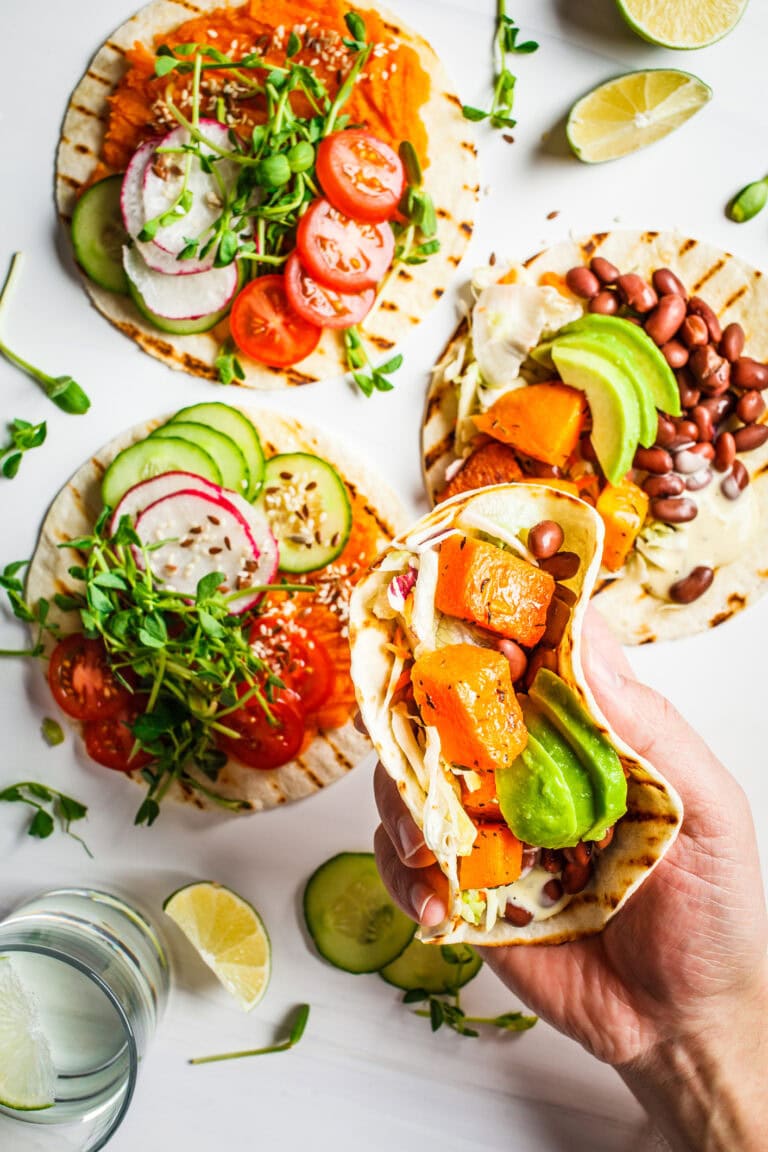
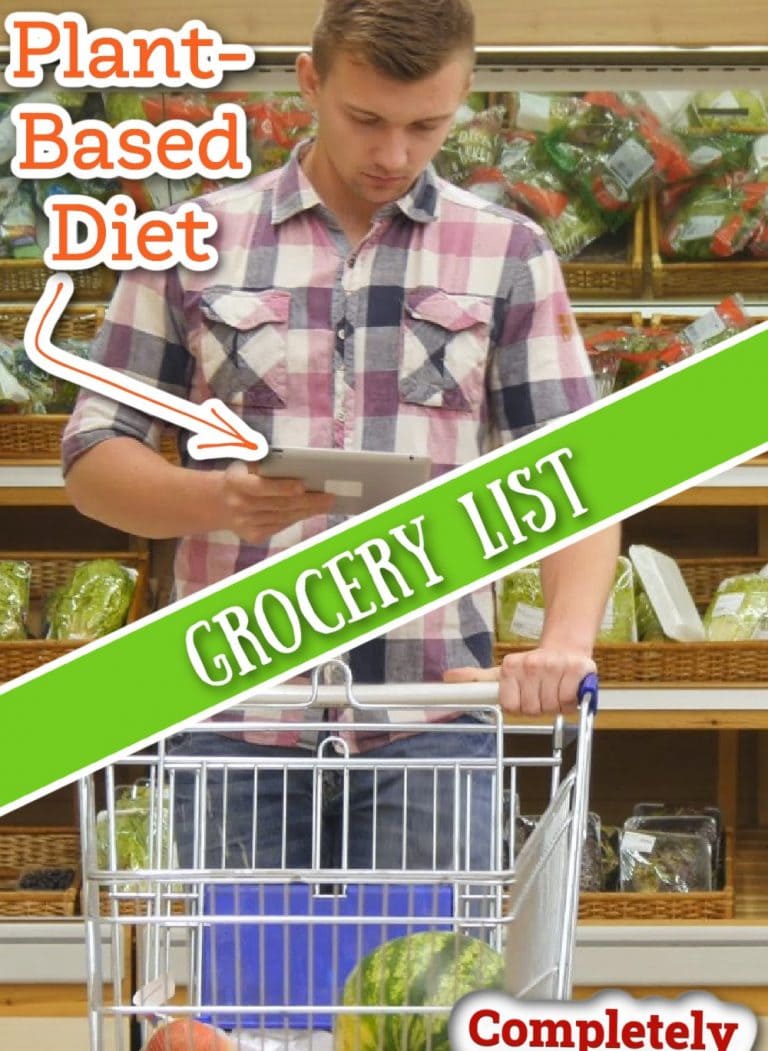
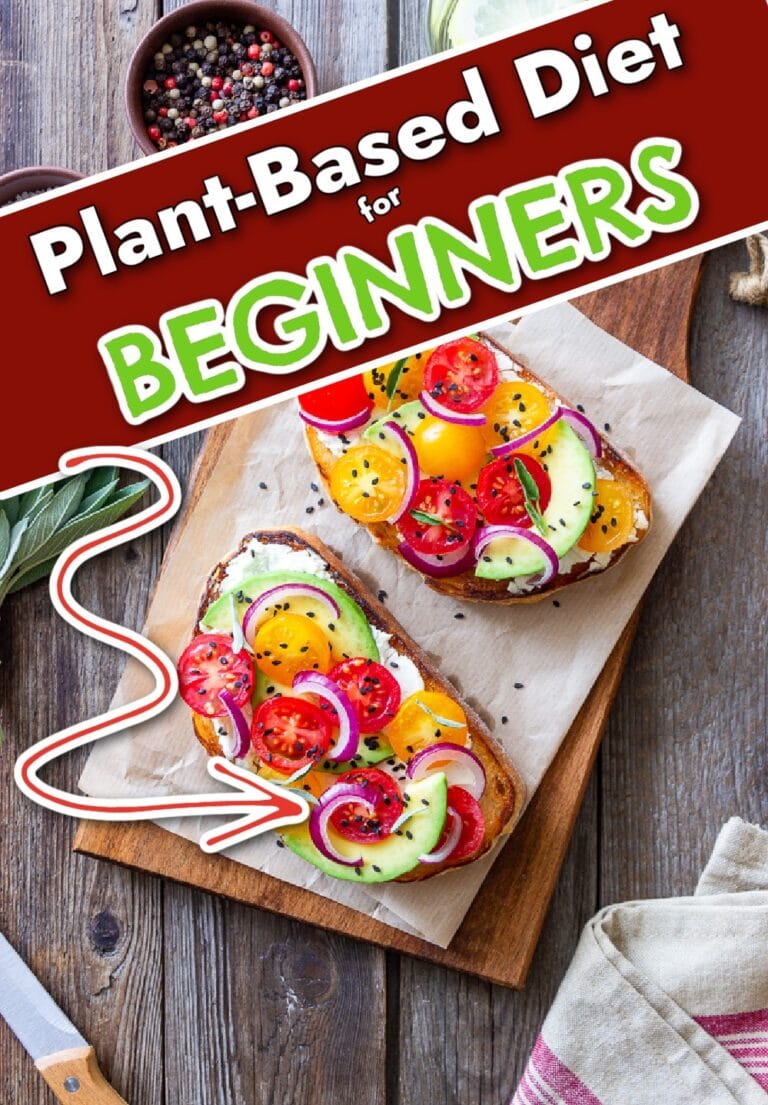
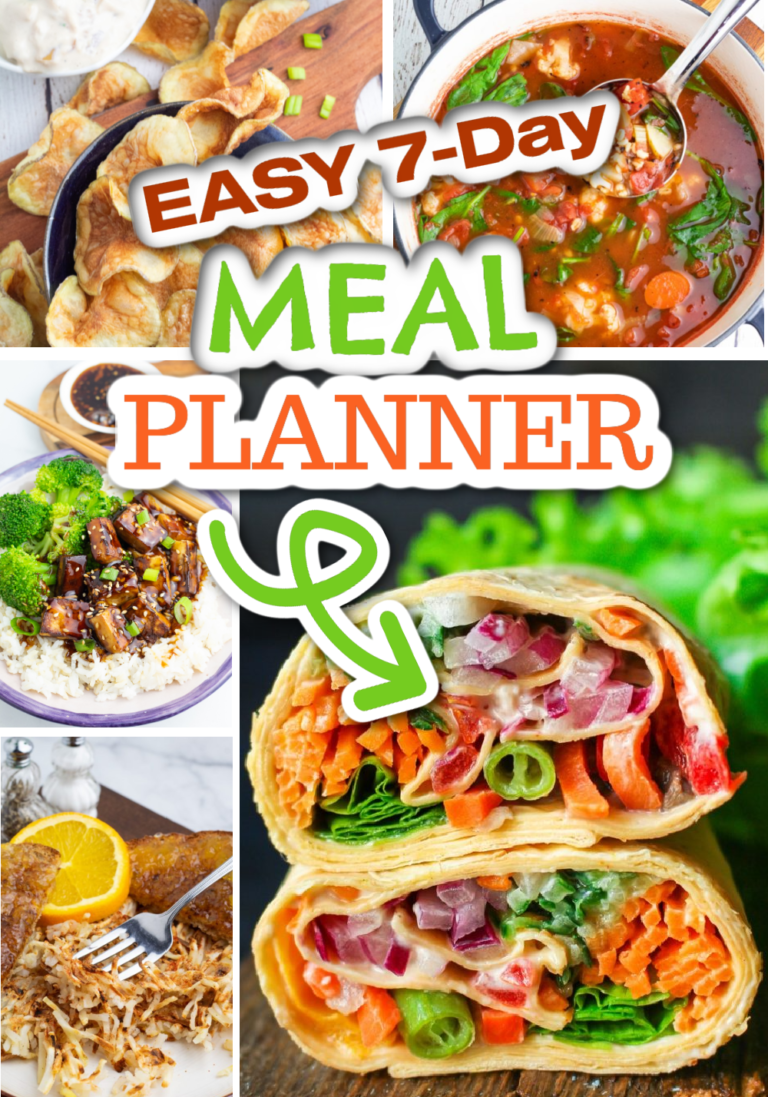

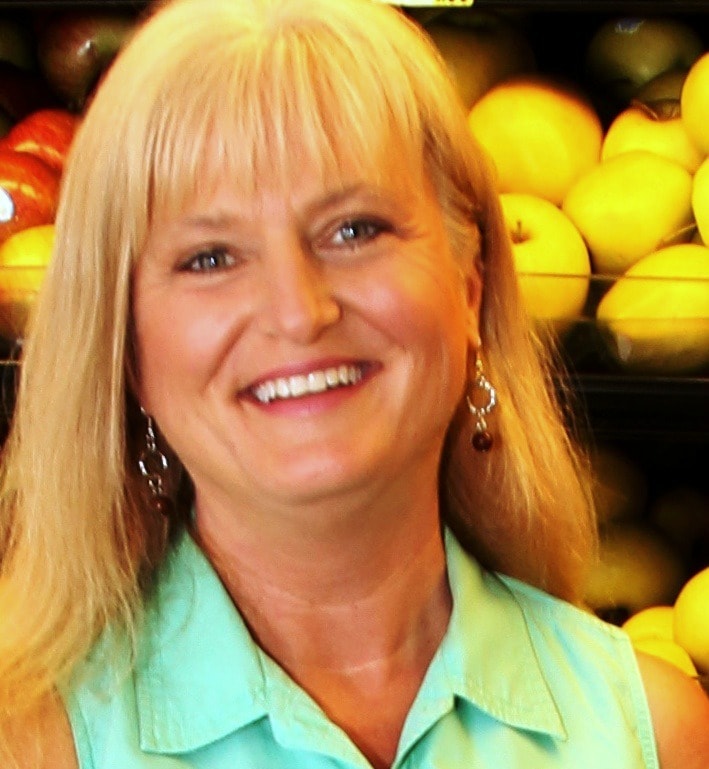
In your vlog you mentioned you told your husband you were going to try plant based eating after watching Forks Over Knives. How did you start and what did you fix for those 10 days?
I have enjoyed your videos, vlogs, and blogs so much and feel with a little help in the recipe
area I can do this and get my husband to do so also.
Thank you for sharing your farm video also – I love that part of NC, we have a home in Charlotte but 15 years ago moved to CA and have been trying to get back ever since!
Thank you!
Hi Teresa- I’m betting that some of the Beginner Guides in the link below can help answer your questions. The one titled Plant-Based 101 talks about how easy it is to make a meal plan. One of the guides is a Grocery Shopping Guide with a shopping list, and the PB on a Budget one has some great meal plan ideas. I hope some of the information will help, and thanks so much for following along on our journey! Click the link in MY BIO for the recipe or full article. https://eatplant-based.com/beginners-guides/
Amazing Way Of Life, I’m 3/4’s there already.
Thank You very much
Namaste
You’re welcome, and congratulations for the changes you are making with your health. Keep up the good work!
Terri. This is a fantastic resource for beginners. I will share it regularly.
You are generous and enthusiastic, and provide fundamental, welcoming information.
Sincere thanks.
Mary
Thank you for your kind words and sharing the article. Very much appreciated!